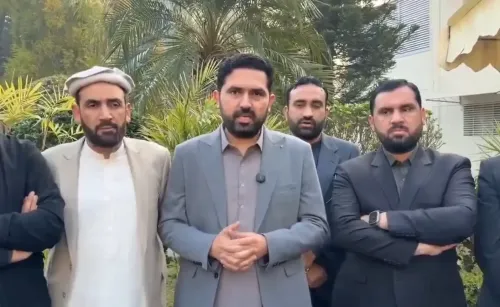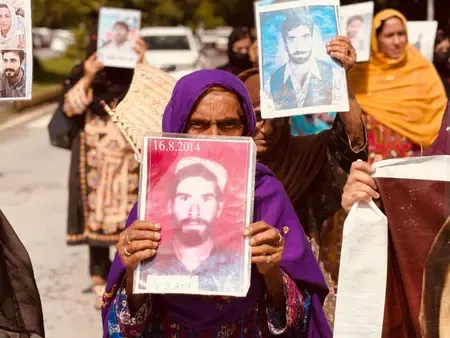Is the Awami League Right About Yunus's Security Operations as Tools of Repression?

Synopsis
Key Takeaways
- Awami League accused Yunus of using security operations for oppression.
- The ICT Act has been misused to stifle dissent.
- Extremist groups operate freely while citizens face repression.
- Dissent now carries severe risks under the current regime.
- The situation raises critical questions about democracy in Bangladesh.
Dhaka, Sep 6 (NationPress) The Awami League of Bangladesh has accused the interim government led by Muhammad Yunus of manipulating "security operations" into tools of oppression across the nation. The party contends that these operations are not protecting the citizens of Bangladesh, but rather providing cover for convicted murderers and extremist militants.
The party asserts that the interim government's focus is not on justice or public safety but on its own survival.
In many functioning democracies worldwide, police actions or national "red alerts" signify responses to legitimate threats—targeting moving terrorists, dismantling extremist networks, and ensuring civilian safety. However, in Bangladesh, these terms have been weaponized over the past 11 months since Yunus ascended to power following the ousting of the democratically elected government of former Prime Minister Sheikh Hasina.
“When Yunus’s administration issues a red alert, it prioritizes shielding terrorists from accountability rather than capturing them. Acquittals, case dismissals, and backdoor negotiations replace genuine legal processes. Concurrently, the state machinery conducts violent crackdowns on civic protests, opposition movements, and even on ordinary citizens who dare to express dissent. Peaceful demonstrators are labeled as 'threats,' while individuals with blood on their hands walk free. The state's supposed 'protector' has turned into its main predator,” stated the Awami League.
The party also highlighted the misuse of Bangladesh’s Information and Communication Technology (ICT) Act under Yunus's regime, asserting that this law, initially intended to combat cybercrime, is now employed to suppress dissent.
According to the Awami League, opposition leaders are summoned to court on baseless charges, biased witnesses are presented before compliant judges, and raids, arrests, and prosecutions are conducted not in the interest of justice but as acts of political retribution.
The party emphasized that this situation reflects not the rule of law but rather a rule by law, a mechanism hollowed out and repurposed as a weapon against the very citizens it was designed to protect.
“The ramifications are catastrophic. Extremist factions—whose public massacres and vicious street killings once incited international outrage—now operate with alarming freedom. Meanwhile, citizens face arbitrary detentions, torture, and harassment for simply advocating for democracy. It is a grotesque perversion of the state's intended role: providing protection for militants while persecuting law-abiding citizens,” the party remarked.
The Awami League has asserted that Bangladesh is currently under a "siege," claiming that security forces, once protectors of public safety, now function as enforcers of a "paranoid regime."
Under Yunus’s government, dissent is met with repression, and the act of protesting carries the peril of death.










